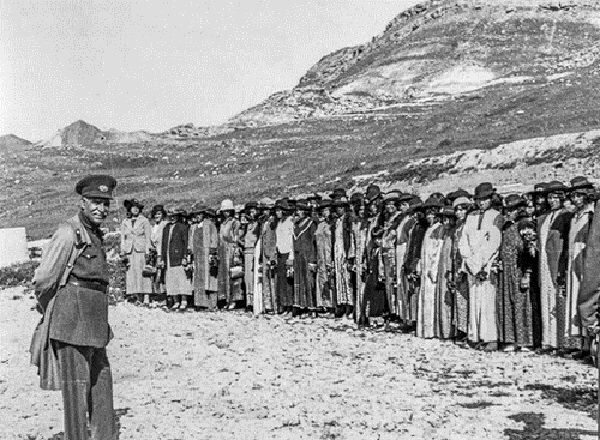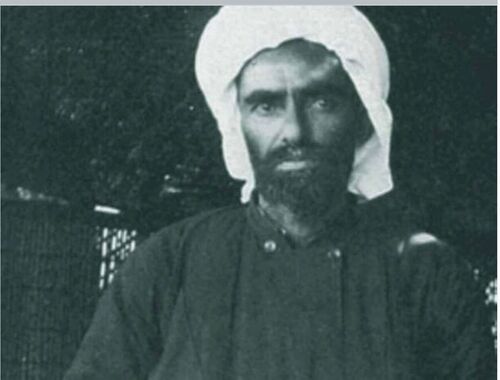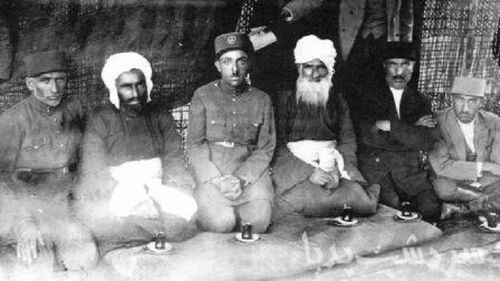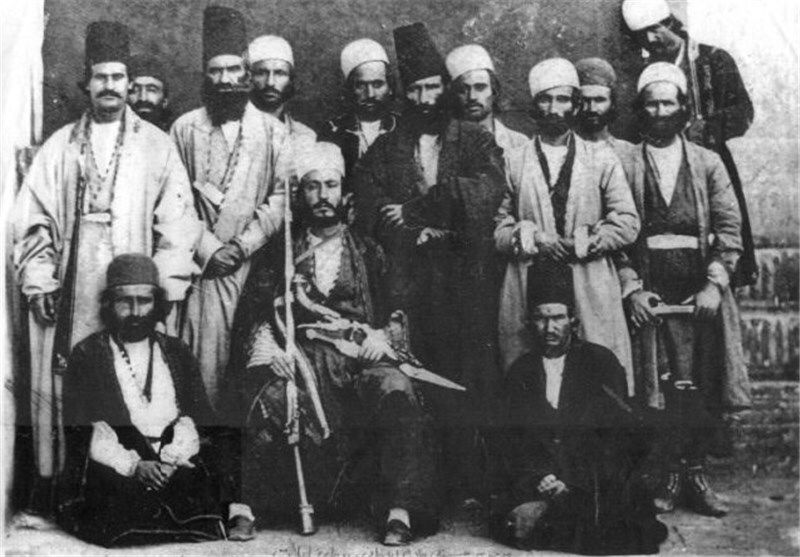Read the first part of this article here
These words were of Reza Khan at a meeting of Iranian merchants at a time when he was running a program of unifying the entire Iranian people, and it is written in the book of Zargham Brojeni entitled "The Governments of the Constitutional Period". What is clear from the historical and political analysis of these statements is that Reza Khan clearly wanted to induce cultural and linguistic assimilation of the non-Persian people of Iran, for example, the Kurds. Politically, all political forces were concentrated at the center and among the centrist politicians, and of course, all of them were at the service of Reza Khan's dominant wishes. But he also wanted to make people culturally the same. In terms of language, he has tried to dissolve other non-Persian languages, including Kurdish. Therefore, all these policies faced opposition from all different tribes, nationalities, and languages of Iran and a series of protests began in Khuzestan, from Arabs to Lors, Kurds, and Turks. The strongest opposition to this cultural policy was the uprising of Mullah Khalil in Mukriyan.

Mukriyan people's plan to oppose Reza Khan's policy of changing clothes: (Mullah Khalil's revolution)
The protests of the people of the area against being forced to change their clothes have taken several forms. People either stopped traveling to other cities to avoid being caught by the regime's officials; either they escaped oppression by paying bribes to escape, even temporarily, or those who were arrested for wearing their national clothes were imprisoned and fined. Only a very small group of people had accepted this oppression. Many of them either worked as employees and teachers in the regime's organizations or were in the center of the cities and had no chance to avoid it.
As the Iranian chief of staff writes in a letter; in Mukriyan, an important figure such as Ahmad Turjanizadeh has worn new clothes of his own free will, which is important because he is a religious scholar and has an influence on people. This shows how weak and alone the central government has been in implementing this comprehensive plan and how it is facing a major political and social problem in Kurdistan.
At that time, most of Iran and Kurdistan were under the rule of tribes and clans. Therefore, working on tribal power has been one of the ways to confront the central government. For this sensitive issue, the tribes of the Mukriyan region, Mahabad, and its surroundings, including the Mirawe region of Sardasht, began to protest.
One of the religious leaders of the area, Mullah Khalil Goramari or Mullah Khalil Mirawe, issued a jihad fatwa against Reza Khan's decision. Thus, the leaders of the Mangur tribe united the people and revolted against the wearing of the Pahlavi hat and the removal of the Islamic hijab.

Mullah Khalil
Many historical sources of the time, such as Iran Between Two Revolutions by Ervand Abrahamian, describe the impact of this revolution. At the same time, the commissioners and commanders of Reza Shah's military forces in the region and the ruler of Azerbaijan all wrote about Mullah Khalil's uprising. The consultation of the articles shows that the state officials were discouraged from implementing this policy and believed it was not in the state's interest to implement this policy in the Kurdistan region. Because they knew that the people were unanimously opposed to this rule in Reza Khan's reforms. As the Iranian army commander wrote to Reza Khan: “The people of the region, led by Mullah Khalil, the chief of the Mangurs, are fighting the state forces and believe that this decision is against their nation. We need to remark that it is not the Mangur or even the religious clerics' issue, but what we are seeing is that the conflict is spreading to all Kurdish areas.
Reza Khan was trying to persuade Mullah Khalil through negotiations. However, Mullah Khalil did not accept and Reza Khan's forces attacked Mullah Khalil's army. Because Mullah Khalil's army had very few arms and basic equipment, they could not resist the army, planes, and helicopters of the regime and crossed the border. The same story is told in Hazhar's book "Cheshti Mjewr". As he writes, it was during his childhood that he heard explosions and many other things. He heard from his father that it was Mullah Khalil's forces that were fighting the central government and he hoped that they could resist the central government and defeat the brutal and oppressive government.

After the Iranian army attacked the Mullah Khalil Revolutionaries, Mullah Khalil, and his forces crossed the border into the southern part of Kurdistan. But Reza Khan understood that the revolution would continue because he had stood against the two wills of the Kurdish people. First, some Kurdish people, who are committed to religious principles, constantly oppose it. Second, most of the Kurdish people, who were nationalists, had seen and participated in several major national revolutions in the eastern part of Kurdistan. They were again in opposition to Reza Khan's forces, and Reza Khan knew that national protests against the occupation would resurface. Therefore, while Mullah Khalil was with his forces in the southern part of Kurdistan, he tried to contact him again so that Mullah Khalil's forces and the regime's forces would not fight and return to Iran according to an agreement. In the agreement, the two sides agreed that Reza Khan and the central government were forced to release the captured Mangur chiefs. Release some of the people who have been arrested. There should be a great deal of freedom of dress and Mullah Khalil and his forces should be protected from being arrested on their return.
Mullah Khalil returned to Iranian Kurdistan and lived there until the age of seventy-five and passed away in Kurdistan.
Although Mullah Khalil Goramari was a brave figure who rebelled against the demands of his nation, he was deceived during the reign of Mohammad Reza Shah Pahlavi and opposed the wishes of the Kurdish nation and Peshawa Qazi Mohammad. He even signed a letter against Peshawa. But discussing that is another matter and does not fit here.








